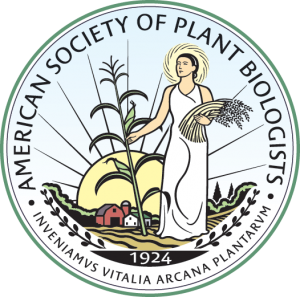The 12 Principles of Plant Biology
The 12 Principles of Plant Biology Are…
- A FRAMEWORK for understanding and appreciating the critical roles of plants to create, improve and sustain life
- A GATEWAY to exploring the fascinating intricacies of plant science through inquiry and scientific thinking
- ALIGNED with the Next Generation Science Standards
The 12 Principles of Plant Biology
- Plants use the same biological processes and biochemistry as microbes and animals. Yet plants are unique because they mix the sunlight’s energy with chemicals for growth. This process of photosynthesis makes the world’s supply of food and energy.
- Plants require certain inorganic elements from soil for growth. Plants play an essential role in the circulation of these nutrients within the biosphere.
- Land plants evolved from ocean-dwelling, algae-like ancestors, and plants have played a role in the evolution of life, including the addition of oxygen and ozone to the atmosphere.
- Reproduction in flowering plants takes place sexually, resulting in the production of a seed. Reproduction can also occur via asexual propagation.
- Plants, like animals and many microbes, respire and utilize energy to grow and reproduce.
- Cell walls provide structural support for the plant and also provide fibers and building materials for humans, insects, birds and many other organisms.
- Plants exhibit diversity in size and shape ranging from single cells to giant trees; there are ~350,000 plant species.
- Plants are a primary source of fiber, medicines, and countless other important products in everyday use.
- Plants, like animals, are subject to injury and death due to infectious diseases caused by microorganisms. Plants have unique ways to defend themselves against pests and diseases.
- Water is the major molecule in plant cells and organs. It’s essential to plant structure, growth, and the internal circulation of organic molecules and salts.
- Plant growth and development are under the control of hormones and can be affected by external signals such as light, gravity, touch or environmental stresses.
12. Plants live in and adapt to a wide variety of environments. Plants provide diverse habitats for birds, beneficial insects and other wildlife in ecosystems.
SPEAK to the world with the following 12 Principles of Plant Biology translations:
All twelve labs are available for free by clicking on the icons below.
12 Inquiry-Based Labs to Explore the 12 Principles of Plant Biology
Each lab contains:
- a concept summary relevant to a middle school audience
- engaging photos to enhance understanding
- tips for setting up and conducting student-driven investigations
- specific teacher guidelines for sourcing materials, streamlining the process, and using additional research
